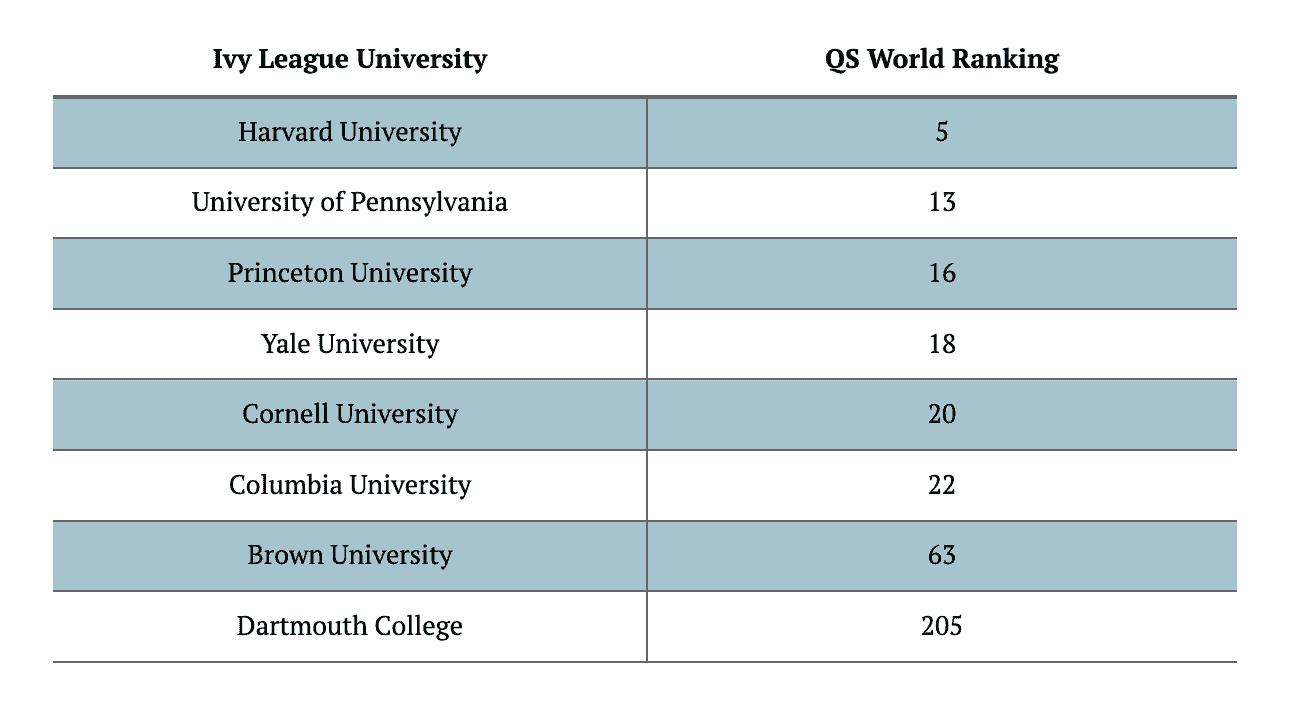Ivy League vs. Russell Group
University Applications


The British Russell Group and the American Ivy League are well-known associations of prestigious research universities. At first glance, what both of them have in common is their selectivity in admissions and high academic standards. However, a closer look suggests at least a few more significant differences between the two.
If we take a closer look at their history, the Ivy League was established in 1954 as an athletic conference of eight private research universities, namely Brown University, Columbia University, Cornell University, Dartmouth College, Harvard University, Princeton University, University of Pennsylvania, and Yale University. Other elite American universities, such as MIT, Duke, and Stanford are on par with the Ivies but did not make the original list back in 1954, when they still lacked the gravitas and did not excel in sports as did the Ivy 8.

It is important to note that the QS ranking displayed above is in stark contrast with other prominent rankings, such as Times Higher Education or the Shanghai Ranking. In the former, 7 of the top 10 universities are US-based, joined by only Oxford, Cambridge, and Imperial College London. In the latter ranking, 8 out of 10 top universities are US-based, joined by only Oxford and Cambridge.
The Russell Group, founded in 1994 to represent the interests of its members to the Parliament and the government, is a younger association of twenty-four public research universities in the UK. Although the Russell Group gathers the UK’s world-class research-intensive universities, it is also highly disputed whether all twenty-four can be considered the very top ones considering their global rankings, and if others, like the University of St. Andrews (ranked No. 96 by the QS World University Rankings, 2023) should be included in this list.

Among the Russell Group universities, Oxford and Cambridge require a special distinction. Often referred to together as a portmanteau ‘Oxbridge’, the University of Oxford and the University of Cambridge are two of the oldest, wealthiest, and most prestigious universities in the United Kingdom. Based on most rankings, they far exceed many of their competitors in the Russell Group in terms of reputation, teaching quality, research output, and other factors. They also run a different, more intense selection process, which takes place earlier in the year.
Below you’ll find a table with some of the more important distinctions between the Ivies and the Russell Group.

To summarize, the main differences between Ivy League and Russell Group universities are the typical degree structure, the admissions process, the associated cost, and, naturally, the study experience. While UK admissions require applying to a specific programme at the undergraduate level, US admissions allow you to apply only to specific universities and choose your academic major later during your studies. In terms of the admissions process, UK universities select students primarily based on their academic achievements while US universities pay careful attention to students’ extracurricular activities and personal achievements. Even after Brexit, study costs for international students at top universities in the UK are formally still lower. However, it is important to take into account that Ivy League universities offer full and partial scholarships based entirely on students’ needs.
Here at Atlas, we help students choose between Ivy League and Russell Group universities that they should apply for based on a series of objective criteria and the student’s own personal preferences, as well as prepare the best possible applications!
Subscribe to our newsletter and get valuable advice on study programs, funding opportunities and much more!